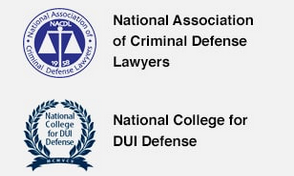Assault With a Knife
Phoenix Lawyer Defending Against Violent Crime Charges
It can be nerve-wracking to be charged with assault with a knife. You may feel uncertain about your future and concerned about the consequences of a conviction. If you are facing criminal charges, you should discuss your case with Phoenix assault defense attorney James E. Novak. As a former prosecutor, he understands how the government approaches assault charges and which strategies may provide the greatest protection for the accused.
Assault With a Knife
Under Arizona Revised Statutes (A.R.S.) section 13-1204, persons who use a knife against another, whether to threaten or maim, may be charged with aggravated assault with a deadly weapon. Because knives may be used as tools, they are not automatically considered to be deadly weapons. However, A.R.S. section 13-105(12) refers to a “dangerous instrument” as any object that, if used or threatened to be used is readily able to inflict serious injury or death. Accordingly, when a person uses a knife to inflict or threaten to inflict serious injury or death, aggravated assault charges may result.
To establish aggravated assault, the prosecutor must prove beyond a reasonable doubt: (1) you committed simple assault, (2) using a deadly weapon or dangerous instrument. Simple assault involves any of the following: (a) knowingly touching someone intending to provoke, insult or injure that person, (b) intentionally causing someone else to reasonably apprehend imminent physical injury or (c) recklessly, knowingly, or intentionally causing physical injury to someone else. An assault could become aggravated assault if you performed any of the foregoing actions while using a knife. For example, if you touched another person with a knife during a bar fight, knowing it would provoke that person, you could be charged with aggravated assault, even if the person was not injured. For another example, if you waved a knife at someone during an altercation in a parking lot and made that person fear for her life, you could be charged with aggravated assault. You could also be charged with aggravated assault if you intentionally used a knife to nick or cut someone else.
Sentencing
The potential sentence for aggravated assault depends on the class of felony for which you’re convicted. It may be charged as a Class 6, Class 5, Class 4, Class 3, or Class 2 felony. Of these, Class 2 aggravated assault is the most severe charge. Meanwhile, class 6 is the least serious charge. Assault convictions carry different potential consequences based on the class of felony. The court may apply the presumptive term to an assault conviction. However, certain circumstances can result in an aggravated or mitigated term.
Defenses
You shouldn’t plead guilty to a charge involving assault with a knife without first consulting a lawyer. A thorough defense may be able to raise reasonable doubt about one of more elements required to secure your conviction. For instance, if you were charged with aggravated assault for knowingly touching someone with a knife, there may be grounds for challenging whether your actions were actually “knowing.” In some situations, defendants may assert self-defense or defense of others. For instance, if you were chopping vegetables in the kitchen and someone broke into your home planning to beat you up, and you threatened that person with the knife, there may be a basis for arguing self-defense. Under A.R.S. section 13-404, people are justified in employing physical force when someone in his or her shoes would believe it’s necessary to do so to guard from an imminent threat. Because the defense should be proportionate to the threat, pulling out a knife would be inappropriate if you felt insulted by someone else’s comments.
Retain a Seasoned Phoenix Attorney
Aggravated assault is a serious charge that carries harsh consequences. If you were charged with assault with a knife in, you should call seasoned lawyer James E. Novak who leverages his experience as a prosecutor to vigorously defend clients charged with violent crimes. He represents clients in Phoenix, as well as Gilbert, Tempe, Scottsdale, Chandler, Mesa, and throughout Maricopa County. Contact him at (480) 413-1499 or complete our online form.






















